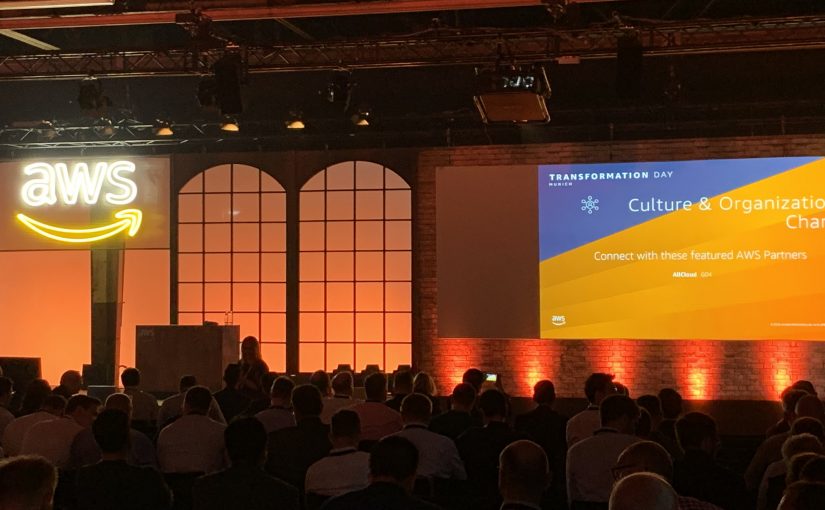Just a small observation I made during AWS Transformation Day. While the entire theme for the event was on transforming business, the schedule had one track for “Culture and Organizational Change” alone. While Culture and Organizational Change is a broad and huge topic, but it is necessary and makes the difference for agility in rapidly changing and competitive markets. Amazon has been talking about this for years and they share their knowledge with their partners.
On an attempt to find out how organizations actually master this, the perspective most consultants and companies I talked to during the event shared with me was rather sobering. Anyone exhibiting at that event merely offered to run any software project under an agile management. No support, consultancy or even efforts to drive actual change, whatsoever, at least nothing that would exceed a traditional software project scope.
Cultural and Organizational Change is something requiring executive buy in and is killed quickly by means of exhaustive efforts to plan ahead. Culture needs to embrace the possibility to change quickly, throughout the process. And the wish for management is human, to have transparency and perspective early in the process, it is just as natural in the process for developers to stay vague for items that are not yet clear.
Any cultural change needs to embrace bi-directual communication and the ability to break down complex. On first thought this sounds easy, but requires plenty of cooperation and trust in a clearly defined team. Culture is rooted in clear understanding of roles, responsibilities and not to mention last, trust of all members.
